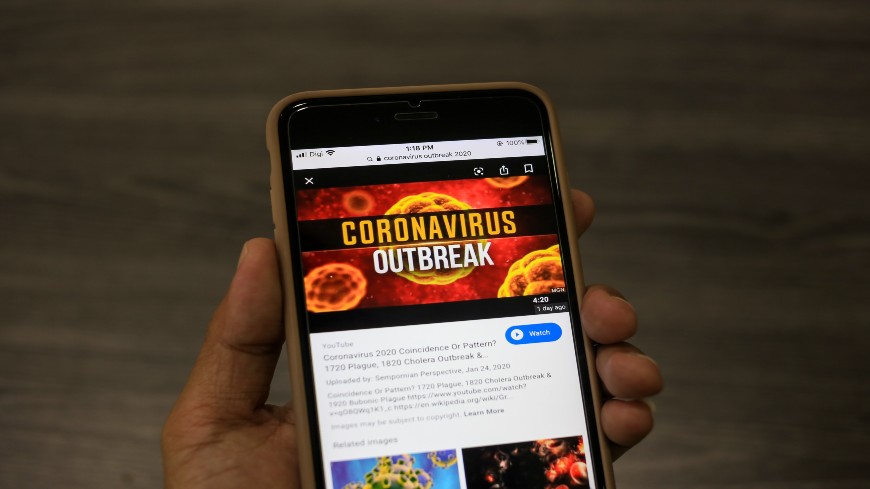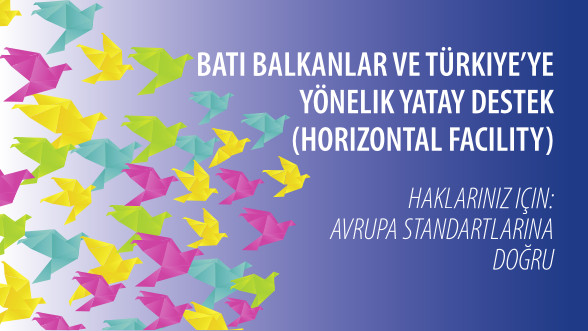Freedom of expression and information and media freedom are crucial for the functioning of a truly democratic society and continue to be so in times of crisis. The provision of timely information about public health risks is a critical element in crisis response.
One of the actions under Horizontal Facility II is “Freedom of expression and freedom of the media in South-East Europe (JUFREX)”, implemented with the aim to improve respect and application of the European Convention on Human Rights and the European Court of Human Rights case-law in the field of freedom of expression and the media in the daily work of all relevant actors. Through all action’s activities, the importance of these rights is always emphasised.
In times of crisis, special attention should be paid to the communication and dissemination of information relating to the virus and its circulation, risks of contamination, number of illnesses/deaths, as well as to those measures which have more remote connection with the policy of social distancing/isolation. Related restrictions on the freedom of expression introduced in some states are potentially worrying.
Media play a key role, also coupled with increased responsibility, in providing accurate, reliable information to the public, but also in preventing panic and fostering people’s understanding for and cooperation with necessary restriction. Media organisations and journalists should adhere to the highest professional and ethical standards, give priority to authoritative messages regarding the crisis, and refrain from publishing, and thus amplifying, unverified stories.
Rumours, misinformation and disinformation are more likely to cause harm to the public order and health safety. As exceptional measures required by exceptional circumstances (i.e. to avoid spreading conspiracy theories, false alerts, etc.), some restrictions may be needed and justified. However, States should avoid measures derogating from the guarantees of Article 15 ECHR that are broadly and vaguely worded, lack foreseeability and/or are likely to lead to over criminalisation. In turn, professional journalists should be careful in verifying information coming from non-official sources before publishing it, and refrain from publishing implausible/sensationalist materials that could cause panic.
States should regularly and promptly inform the public about the dimensions and implications of the crisis and the governments’ measures, engaging in an open communication that promotes trust and cooperation of every individual. However, the flow of information about the pandemics should not be reduced to official communications. This would lead to censorship and suppression of legitimate concerns.
Journalists and media, medical professionals, along with civil society activists and members of the general public, should have the right to criticise the authorities and scrutinise their response to the crisis. This is particularly important now, when other checks and balances on the government action are removed or eased, especially under emergency measures or even the state of emergency in some states. The heroic story of Li Wenliang, the Chinese whistle-blower doctor, shows the danger of suppressing free flow of information of vital importance. Likewise, it is unacceptable to use the epidemy as a pretext to silence the political opponents of the current government.
Finally, there is hardly any justification for prior censorship of certain topics, closure of media outlets or outright blocking of access to on-line communication platforms. Malicious spreading of disinformation may be tackled with ex post targeted sanctions, and with the governmental information campaigns. States should work together with online platforms and the media to prevent the manipulation of public opinion, as well as to give greater prominence to generally trusted sources of news and information, notably those communicated by public health authorities.
While it is natural to limit physical public gatherings, on-line forms of civic and communal life must not only be preserved but actively supported by the State.
The European Union/Council of Europe “Horizontal Facility for the Western Balkans and Turkey 2019-2022” is a co-operation initiative of the European Union and Council of Europe that enables the Beneficiaries to meet their reform agendas in the fields of human rights, rule of law and democracy and to comply with the European standards, including where relevant within the framework of the EU enlargement process.
Read full text on “Mitigating a global health crisis while maintaining freedom of expression and information”
Guidelines of the Committee of Ministers of the Council of Europe on protecting freedom of expression and information in times of crisis:


